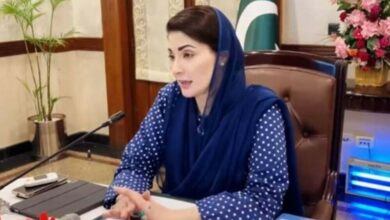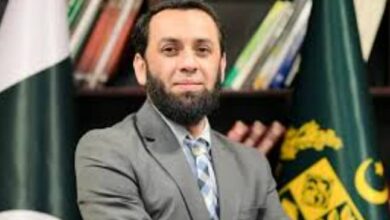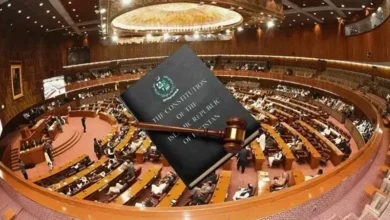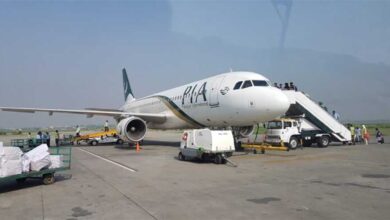DAMASCUS, NEW YORK: Syrian rebels, whose swift take over of Damascus oustering now-former president Bashar al-Assad has left the region and the world nervous, are now working towards forming a government and restoring order in the country after much turmoil.
The United Nations Security Council met behind closed doors late on Monday, and diplomats said they were still in shock at how quickly Assad’s overthrow unfolded over 12 days, after a 13-year civil war that was locked in stalemate for years.
“Everyone was taken by surprise, everyone, including the members of the council. So we have to wait and see and watch […] and evaluate how the situation will develop,” Russian UN Ambassador Vassily Nebenzia told reporters after the body met.
Moscow played a major role in supporting Assad’s government and helping it fight the rebels. The Syrian leader fled Damascus for Moscow on Sunday, ending more than 50 years of brutal rule by his family.
With the mood in Damascus still celebratory, Assad’s prime minister, Mohammed Jalali, on Monday agreed to hand power to the rebel-led Salvation Government, an administration based in rebel-held territory in northwest Syria.
The main rebel commander Ahmed al-Sharaa, better known as Abu Mohammed al-Golani, met with Jalali and Vice President Faisal Mekdad to discuss the transitional government, a source familiar with the discussions told Reuters.
Jalali said the handover could take days to carry out.
Meanwhile, Al Jazeera reported that the transitional authority would be headed by Mohamed al-Bashir, who led the Salvation Government.
The steamroller advance of the rebel alliance headed by Hayat Tahrir al-Sham (HTS), a former al-Qaeda affiliate, was a generational turning point for the Middle East.
The civil war that began in 2011 killed hundreds of thousands, caused one of the biggest refugee crises of modern times and left cities bombed to rubble, the countryside depopulated and the economy hollowed out by global sanctions.
However the rebel alliance has not communicated plans for Syria’s future, and there is no template for such a transition in the fractious region.
‘Accountability for torture, war crimes ‘
Oil prices rose more than 1% on Monday, partly on concerns that instability in Syria, which is not a major oil producer, could raise regional tensions, analysts said.
“This is an incredible moment for the Syrian people,” said Deputy US Ambassador to the UN Robert Wood in New York.
“Now we’re really focused right now on trying to see where the situation goes. Can there be a governing authority in Syria that respects the rights and dignities of the Syrian population?”
The US was seeking ways to engage with Syrian rebel groups and is reaching out to partners in the region such as Turkey to start informal diplomacy, said Washington.
Qatari diplomats spoke with HTS on Monday, an official briefed on the developments told Reuters, as regional states race to open contact with the group.
There were tentative signs of a return to order. Syria’s banks will reopen on Tuesday, and the oil ministry called on all employees in the sector to head to work on Tuesday, adding that protection would be provided to ensure their safety.
Reuters reporters saw four mini-buses arriving at the Central Bank of Syria, with employees disembarking and walking into the building for their first day of work since Assad’s fall.
“It’s a new shift, it’s a new day, a new year, a new life,” said Sumayra al-Mukli.
Golani has vowed to rebuild Syria, and HTS has spent years trying to soften its image to reassure foreign nations and minority groups within Syria.
But fears of reprisals remained. HTS said it will not hesitate to hold security and army officers involved in torturing the Syrian people accountable, describing them as criminals and murderers.











